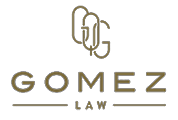Moving to Florida or considering a home purchase in the Sunshine State? You’ll likely encounter a homeowners association (HOA). With approximately 45% of dwellings already living in HOA communities, understanding these organizations is crucial for making an informed decision. Whether you’re a first-time buyer or new to Florida, this comprehensive guide will help you navigate the world of HOAs, understand your rights, and determine if HOA living aligns with your lifestyle and financial goals.
As experienced Miami HOA attorneys, we’ve helped countless Florida homeowners fight back against HOA harassment…and win. Call (305) 720-9601 for your free, confidential consultation and learn how we can stop your association’s abuse of power.
Understanding HOAs: The Basics
What is an HOA?
In Florida, a homeowners association is legally defined as a private association of property owners where two key criteria must apply:
- Membership is mandatory for property ownership
- The association has authority to impose assessments that may become a lien on your property if unpaid
This legal framework gives HOAs significant power over community governance and individual homeowner obligations.
Primary Functions of HOAs
HOAs serve three main purposes:
- Property Value Protection: Enforcing community standards to maintain neighborhood appeal
- Common Area Maintenance: Managing shared spaces and amenities like pools, parks, and clubhouses
- Essential Services: Providing administrative oversight and conflict resolution
Governance Structure
| Position | Responsibilities |
|---|---|
| Board of Directors | Elected by homeowners to manage daily operations |
| President | Oversees board decisions and community leadership |
| Secretary | Handles documentation and legal compliance |
| Treasurer | Manages finances and budgeting |
Developer Control vs. Resident Control
- Initial Phase: Property developers establish and control the HOA during construction
- Turnover: Florida law requires control transfer when 90% of units have sold and closed
- Resident Control: Homeowners elect their own board of directors after turnover
Financial Considerations
HOA Fee Structure
| Fee Range | What’s Included |
|---|---|
| $100-$300 | Basic common area maintenance, administration |
| $300-$500 | Enhanced amenities (pools, fitness centers) |
| $500+ | Luxury communities with extensive facilities |
What HOA Fees Cover
- Maintenance of common areas and landscaping
- Shared amenities (pools, fitness centers, clubhouses)
- Administrative costs and management fees
- Insurance for common areas
- Sometimes: exterior maintenance, landscaping services
Hidden Costs to Consider
Special Assessments
- Purpose: Major repairs or improvements beyond regular maintenance
- Examples: Roof replacements, infrastructure upgrades, emergency repairs
- Cost Range: Hundreds to thousands of dollars per homeowner
- Frequency: Varies based on community age and reserve fund management
Fee Increases After Developer Turnover
⚠️ Warning: Developers often subsidize initial budgets to keep fees artificially low
Before purchasing in a new development:
- Review the actual operating budget
- Assess whether current fees reflect true maintenance costs
- Prepare for potential 20-50% increases after turnover
Consequences of Non-Payment
Florida law provides HOAs with strong enforcement mechanisms:
- Warning notices and late fees
- Property liens for unpaid dues or fines
- Legal action and attorney fees
- Foreclosure for persistent non-payment
Rules, Regulations, and Your Lifestyle
Common HOA Restrictions
Architectural Controls
- Paint colors and exterior materials
- Roofing styles and colors
- Landscaping standards and plant selections
- Home modifications requiring pre-approval
Property Use Limitations
- Pet restrictions: Number, size, breed limitations
- Parking rules: Street parking, RV/boat storage
- Recreational equipment: Basketball hoops, playground equipment
- Holiday decorations: Timing and style restrictions
Rental and Leasing
- Short-term rental prohibitions (Airbnb, VRBO)
- Minimum lease terms (often 6-12 months)
- Tenant screening requirements
Understanding CC&Rs
Covenants, Conditions, and Restrictions (CC&Rs) are legally binding documents that:
- Outline specific community rules and standards
- Define enforcement procedures and penalties
- Establish architectural review processes
- Cannot violate federal, state, or local laws
Enforcement Mechanisms
| Violation Level | Typical Response |
|---|---|
| First Offense | Warning letter, 14-day cure period |
| Repeat Violations | Fines ($25-$100+ per day) |
| Serious Violations | Hearing before board, higher fines |
| Persistent Issues | Legal action, lien placement |
Weighing the Pros and Cons
✅ Benefits of HOA Living
Property Value Protection
- Consistent maintenance standards prevent neighborhood decline
- Architectural guidelines maintain visual appeal
- Professional management ensures quality upkeep
- Better resale values compared to non-HOA communities
Lifestyle Advantages
- Shared amenities without individual maintenance responsibility
- Professional landscaping and common area care
- Conflict resolution services between neighbors
- Community events and social opportunities
- Enhanced security in many gated communities
Convenience Factors
- Maintenance-free living for busy professionals
- Professional management of community issues
- Streamlined services like trash collection and landscaping
❌ Potential Drawbacks
Loss of Autonomy
- Approval required for exterior changes
- Limited personalization options
- Strict compliance requirements
- Potential conflicts with board decisions
Financial Burdens
- Ongoing monthly fees in addition to mortgage
- Special assessments for major repairs
- Fines and penalties for violations
- Potential fee increases over time
Management Issues
- Overly aggressive boards creating hostile environments
- Poor financial management leading to increased costs
- Inconsistent rule enforcement causing neighbor conflicts
- Limited recourse for unreasonable decisions
Making the Right Decision for You
Self-Assessment Questions
Before committing to HOA living, consider:
Lifestyle Compatibility
- Do you enjoy DIY projects and home customization?
- Are you comfortable with rules governing your property’s appearance?
- Do you value community amenities over individual autonomy?
- Can you work within a structured community environment?
Financial Readiness
- Can you afford current HOA fees plus potential increases?
- Do you have reserves for special assessments?
- Are the amenities worth the ongoing costs?
- Will HOA fees impact your mortgage qualification?
Due Diligence Checklist
Document Review
- ☐ CC&Rs and community bylaws
- ☐ Recent board meeting minutes
- ☐ Annual budget and financial statements
- ☐ Reserve fund study and adequacy
- ☐ Insurance coverage details
- ☐ Management company contract
Community Research
- ☐ Drive through at different times of day
- ☐ Talk to current residents about their experiences
- ☐ Attend a board meeting if possible
- ☐ Check online reviews and community forums
- ☐ Research board member backgrounds
- ☐ Verify management company reputation
Understanding Your Rights as a Homeowner
Florida law provides homeowners with specific protections:
Participation Rights
- Vote in board elections and important decisions
- Attend board meetings and community forums
- Run for election to the board of directors
- Access financial records and governing documents
Legal Protections
- Due process for violation hearings
- Appeal rights for board decisions
- Protection against arbitrary rule enforcement
- Legal recourse for breach of fiduciary duty
When to Seek Legal Help
Consider legal consultation when:
- HOA rules appear to violate state or federal law
- Board decisions seem arbitrary or discriminatory
- Excessive fines or penalties are imposed
- Your rights as a homeowner are being violated
- Communication with the board has broken down completely
At Gomez Law, we specialize in protecting homeowners’ rights against unfair association practices. With over 20 years of experience led by founding partner Eduardo Gomez, our firm has successfully helped homeowners overturn bogus fines, stop harassment campaigns, and hold boards accountable for breaking their own rules. We offer:
- Personalized service where you speak with an attorney from day one
- Contingency fee arrangements for many cases (you only pay if we win)
- Comprehensive HOA dispute resolution
- Bilingual services (Hablamos Español)
Conclusion
HOA living in Florida offers both significant benefits and important limitations that vary based on individual circumstances and community quality. The key to success lies in:
Key Takeaways
- Research thoroughly before purchasing in any HOA community
- Understand all financial obligations including potential increases
- Review governing documents carefully with legal counsel if needed
- Assess lifestyle compatibility honestly
- Know your rights as a homeowner and community member
Final Recommendations
✅ HOA living may be right for you if:
- You value professional maintenance and community amenities
- You prefer structured environments with clear standards
- You want protection for your property investment
- You enjoy community involvement and social opportunities
❌ Consider alternatives if:
- You prioritize complete autonomy over your property
- You’re on a very tight budget with no room for fee increases
- You prefer handling your own maintenance and improvements
- You’re uncomfortable with community rules and restrictions
Take time to review all documents, visit communities at different times, and speak with current residents. If you’re already in an HOA and facing disputes or unfair treatment, remember that you have rights and legal options available. For complex HOA disputes or legal questions, contact Gomez Law for experienced representation that puts homeowners first.
Making an informed decision about HOA living will help ensure your Florida home becomes the sanctuary you envision rather than a source of ongoing stress.

